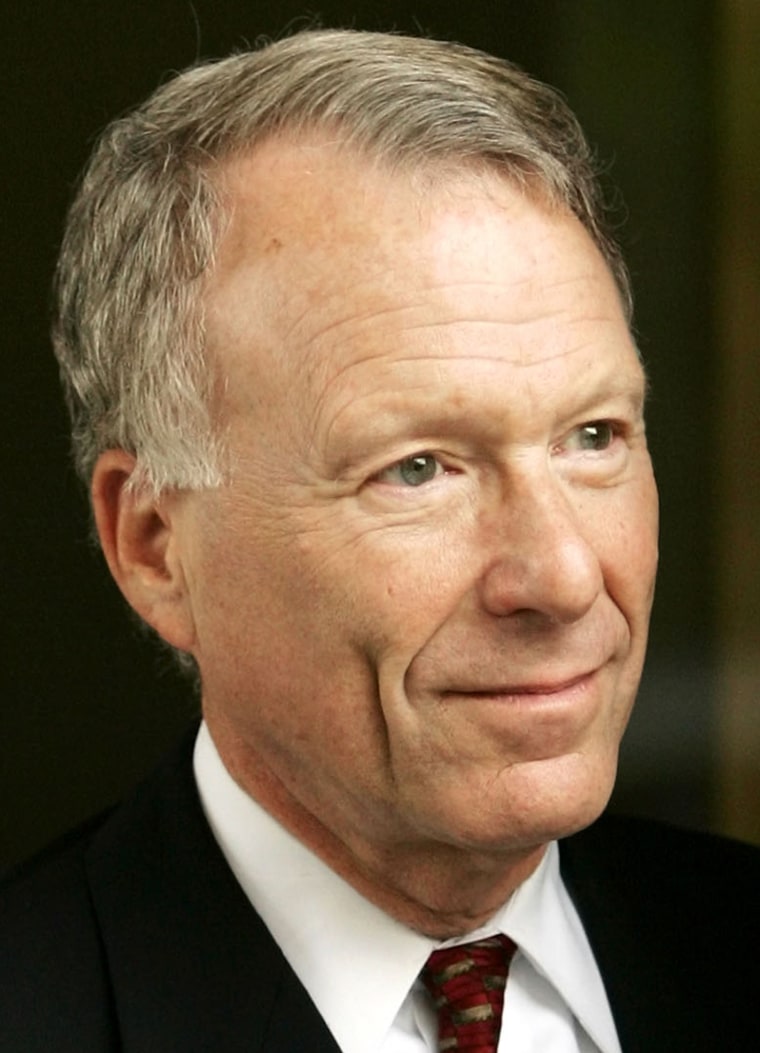In what may be the most decisive pre-trial hearing in the CIA/Leak case against I Lewis "Scooter" Libby, the parties involved are again facing off in courtroom arguments today over which, if any, classified documents Libby will be allowed to use to defend himself against charges of perjury and obstruction at his trial in January. Libby's attorney's, in a court filing, have identified nine national security matters they wish to present at trial. Special Counsel Patrick Fitzgerald is arguing to limit the classified materials allowed saying details in the documents will be a waste of time for a jury.
Libby's legal gambit - threatening to reveal sensitive national security details during the trial - has the potential of derailing the proceedings. It is a legal tactic called, "graymail."
Attorney's representing Vice President Cheney's former top aide, and Special Counsel Fitzgerald, are again before Judge Reggie Walton, in the fourth day of closed hearings dealing with which classified documents will be admitted. And again carts full of classified documents have been wheeled into the courtroom.
Up to the judge
Libby has already said he plans to testify himself to tell jurors that he never lied to investigators or a grand jury in the leak case. He faces five counts of perjury, making false statements, and obstruction of justice.
Judge Walton, using the standard rules of evidence will make the ultimate decision on what is in and what must be left out. He must decide the use, relevance, or admissibility of classified information. Then the judge will hold another round of hearings to assess if any of the classified documents he may allow can be redacted, deleting only non-relevant classified information.
Libby's attorneys say he will tell the jury that the "constant rush of urgent national security and foreign policy issues commanded his attention" and caused Libby to "confuse and misremember the snippets of conversations" about how he learned and what he told three reporters about CIA operative Valerie Wilson Plame.
Special Counsel Fitzgerald, in a court filing, has said that allowing Libby, "to describe ad infinitum," particular items of classified information that he heard about, "as if each particular item overwhelmed his ability to remember (and to not fabricate) other conversations is misleading and confusing and unnecessarily wasteful of time."
Matters 'of surpassing importance'
Fitzgerald also writes that the details and facts in the classified documents Libby wants to present at trial, like the names of leaders or government officials of other countries, or the names and histories of various terrorist groups that Libby may have already known, "will either inaccurately suggest that the defendant was learning more new information than he really was or time will be spent explaining the details to the jury to avoid confusion."
According to their court filings, Libby will be able to testify about the nine national security items "with some precision." But, they say he needs the classified documents to show that these nine issues happened on particular days more than three years ago. Without the documents, his lawyers argue, a jury "may think he has an extraordinary memory" thus doubting his memory defense. He will say that those matters "were of surpassing importance" to him, while conversations about Plame were not. Much of the classified documents sought by Libby's team, they say, will be presented as a series of "dots" in a PowerPoint presentation at trial.
Also at issue, documents related to former Ambassador Joseph Wilson's trip to Niger and his op-ed in the New York Times on July 6, 2003 which he asserted that the Bush administration "twisted" facts on Iraq's capabilities in terms of weapons of mass destruction. Fitzgerald says the Wilson article caused a firestorm in the Vice President's office and a concerted effort to retaliate against Wilson by outing his wife.
Libby's attorney's say that classified document they seek will show that while there was extensive discussion in the Vice President's office, the White House and the CIA over the facts in Wilson's article, during that time period, "Libby's notes do not contain a single mention of Ms. Wilson."
Jury selection is scheduled to begin on January 16, 2007.
